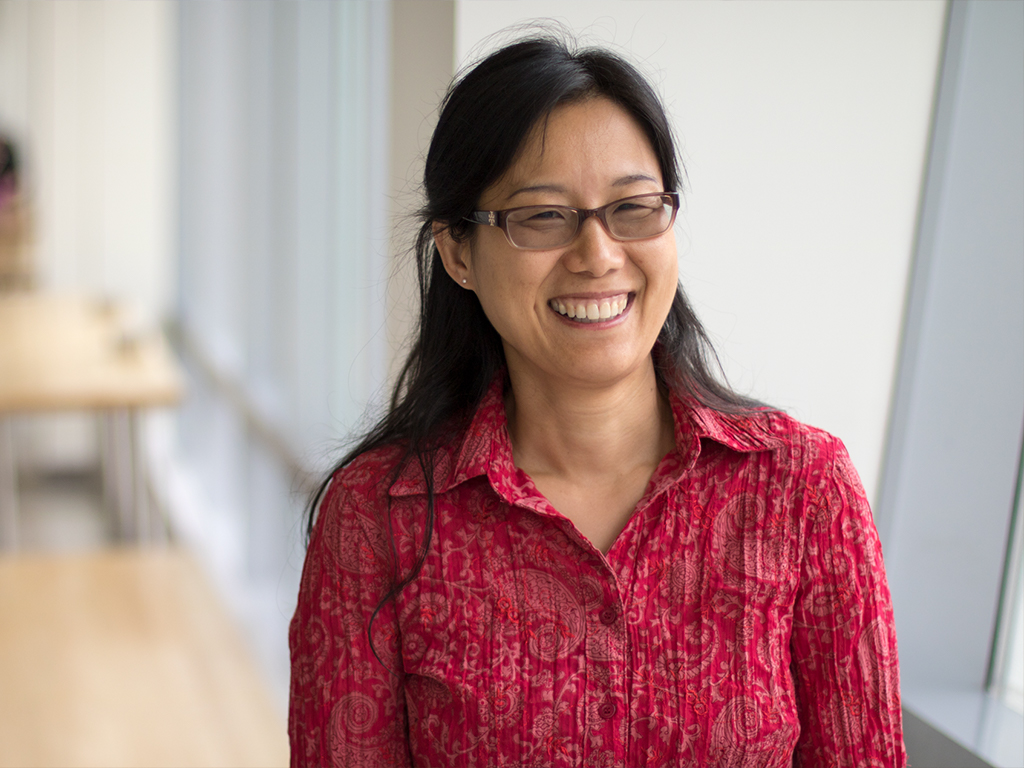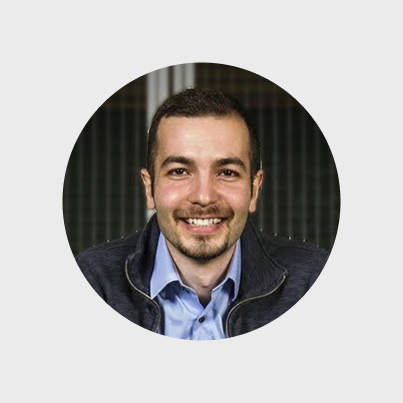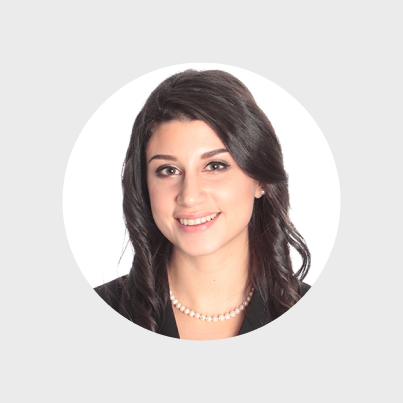Aerospace Engineering Graduate Program
What makes this program different?
Through one of our three specializations, aerospace grad students are empowered to build on their interests, gain specialized skills, conduct internationally recognized research, and work alongside our commercial partners on solutions that often get applied in commercial aircrafts.
Degree:
PhD, MASc, MEng, PMDip
Department
Aerospace Engineering
Fee range:
Domestic $9,517 - $10,622
Options:
1 or 2 yrs, FT & PT, 3 specializations, AERIAS internship
Research & professional development options
Pursue a career in academia or breakthrough research with our MASc (Master of Applied Science) and PhD streams, or elevate your understanding of aerospace engineering through our course-based MEng and professional diploma (PMDip) options.
Work & research with leading aerospace companies
Opt to become an AERIAS intern, and conduct intensive research with a leading aerospace partner like Bombardier, BionX or UTC Aerospace systems while helping them improve products or processes.
State-of-the art facilities & renowned faculty
Be guided by renowned faculty researchers whose breakthroughs have led to profitable startups and sought-after solutions. Explore endless research possibilities with our facilities’ transformative tools and technology.

Explore your journey
PhD
Ideal for engineers with a master’s degree who want to pursue a career in academia or a professional research career.
MASc
Ideal for engineers with an undergraduate degree who want to pursue a specific research area or idea.
MEng
Ideal for engineers with an undergraduate degree who want to elevate their credentials and increase their job market opportunities.
PMDip
Ideal for technical staff engineers with an undergraduate degree who want more in-depth training, to advance in their career, or interact better with government and large corporations while continuing to work.
Courses offered in each of the three focus areas explore a range of topics from fluid mechanics, and aerospace manufacturing, to avionics and navigation, nanomaterials and nanocomposites. Whether you’re in a research-intensive program or pursuing professional development, the selection of available courses is designed to deepen technical engineering skills and foster real-life applications of ambitious and creative concepts and solutions.
As a PMDip student, you can trust that the skills you gain will be in high demand. Each course is developed in consultation with the Canadian aerospace industry and adheres to aircraft certification regulations, ensuring your expertise aligns with industry standards.
Visit the graduate calendar for full course descriptions and see which courses are offered this academic year.
Grade requirements: If a course mark is less than B- (2.67/4.33 or 70%) for both MEng and MASc, and less than B (3.00/4.33 or 73%) for PhD, you must repeat the course or alternate with another. Failure to maintain an acceptable academic standing could result in your being asked to withdraw from the program. Failure in more than one course will be considered grounds for dismissal.
Enrich your learning through research, labs & community
With each field of study designed to encourage and guide your existing passions and curiosity, our programs offer all the tools, facilities, mentors and access to industry opportunities you need.
With each field of study designed to encourage and guide your existing passions and curiosity, our program offers all the tools, facilities, mentors and access to industry opportunities you need.
Research Areas:
- Applied aerodynamics research
- CFD algorithms
- Cooling of gas turbine components
- Nonlinear aeroelasticity
- Propulsion system research
- Subsonic and supersonic aircraft design
- Thermal management in aerospace systems
- Wind turbines
Research Laboratories and Facilities:
With expertise in this field, you’ll have the skills you need to build a career as a structural engineer, stress analyst, structural designer, structural load officer, mass engineer, methods engineer, manufacturing engineer, aerospace materials engineer, airworthiness engineer and more.
Research Areas:
- Characterisation
- Computational methods in composite airframes
- Laser micro machining
- Manufacturing and automation
- Modeling and analysis of aerospace advanced materials and structures in design and manufacturing
Research La ac boratories and Facilities:
This field is ideal for our students who want careers in flight control systems engineering, automated control systems engineering, satellite systems engineering, space mission planning, satellite attitude control engineering, automation engineering and more.
Research Areas:
- Advanced aerospace vehicle dynamics
- Control systems development for robotics and aerospace systems
- Innovative computer vision algorithms for unmanned space operations
- Instrumentation
- Spacecraft dynamics and control

Aerospace engineering professor Bo Tan leads a research team that has developed a cancer detection process that uses quantum sensors to analyze blood samples.

Aerospace engineering professor Goetz Bramesfeld, along with TMU alumni and founders of Superwake, built a solar-powered aircraft to monitor caribou populations in collaboration with Environment and Climate Change Canada.

Whether you’re looking to join a student group, advocate for your peers in student government, challenge yourself and others at our graduate symposium, or just looking for support, we encourage you to make the best of your experience at TMU.

What can you do with this degree?
Career possibilities
TMU aerospace graduates are equipped with a competitive advantage, having gained invaluable expertise responding to emerging challenges and having made their own research breakthroughs. Our graduates pursue successful careers at national and international companies as aerodynamicists, propulsion engineers, structural designers, materials engineers, flight control systems engineers, space mission planners and more.
Possible employers:
- Boeing
- Bombardier
- Magellan aerospace
- Safran
- Heroux-Devtek
- And more…

Afshin Rahimi
Associate Professor, University of Windsor
"At Toronto Metropolitan University, the amount of support and mentorship I received from the Faculty was incomparable, and the internship through the one-of-a-kind AERIAS program landed me a job right after graduation."
Aerospace Engineering (PhD) '17

Rose Ghamari
Manager, Entrepreneur & Talent Develpment, The DMZ
“The courses offered in the PMDip provided me with the right expertise and knowledge, which helped me excel and stand out in my daily work. This program was a perfect complement to my undergraduate degree and allowed me to continue developing my professional network while still maintaining my full-time job in the industry.”
Aerospace Engineering (PMDip) ‘15
Aerospace grad students engage in remarkable and innovative research every day. The outcome of their work and dedication is a powerful example of what you can reimagine and accomplish with the guidance of our world-class faculty, the support and encouragement of peers, and engagement with the most advanced technologies, materials and ideas. Explore some of their research and discoveries below.
From exploring innovative aerospace designs to advanced spacecraft dynamics to PAVs, our aerospace graduate students are envisioning a future with travel technologies that advance ideas of sustainability, efficiency and global communities.
Effects of Wing Flexibility on Vortex Behaviors and Aerodynamic Performance in Various Flapping Flights
YeongGyun Ryu
A Distributed Doublet-Based Method for Unsteady Aerodynamic Analysis with Relaxed Wakes
Travis Krebs
Spacecraft Orbit-Attitude Coupled Dynamics in Close Proximity to Small-Bodies
Dante Bolatti
Spacecraft Orbit-Attitude Coupled Dynamics in Close Proximity to Small-Bodies
Dante Bolatti
From exploring innovative aerospace designs to advanced spacecraft dynamics to PAVs, our aerospace graduate students are envisioning a future with travel technologies that advance ideas of sustainability, efficiency and global communities.
Design of Flight Deck Displays for General Aviation Electric Aircraft
Maryam Safi
An Investigation into Fundamental Frequency of Intact and Defective 3D-printed PLA Beams
Ali Foroozanfar
Design and Evaluation of General Aviation PFD Symbology Based on Human Factors
Abdul Khalid Sherief Jabbar
Furniture Folding Methodology For Reconfigurable Aircraft Cabins
Aditya Venkatesh
Low Reynolds Number Scaling Effects for Small-Scale Rotors
Ammar Jessa
From exploring innovative aerospace designs to advanced spacecraft dynamics to PAVs, our aerospace graduate students are envisioning a future with travel technologies that advance ideas of sustainability, efficiency and global communities.
A Preliminary Investigation of a Hydrogen Injection Wedge Strut for a Scramjet Combustor Application
Antonella Ruta
Vehicular Aerodynamics Wind Tunnel Testing of Unmanned Aerial Multirotor Vehicles and Wall Interference Corrections
Aarifah Haleem
Design of a New Co-flow Burner
Pascal Leung
Development of Biaxial Testing Apparatus
Amir Noorafkan
The Design of a Quick Release Attachment Mechanism for a Hydrofoil Board
Zarya Blackwood
